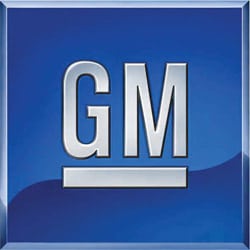 Yesterday Mel Karmazin spoke at Bank of America Merrill Lynch Media Communications and Entertainment Conference. ?During the conference CEO Mel Karmazin was asked about an OEM deal that was scheduled to take effect after Q3 of 2013, and that the OEM deal would be good for EBITDA. ?This question, and Mel Karmazin?s elusive answer seems to have started a bit of speculation, some of it wild.
Yesterday Mel Karmazin spoke at Bank of America Merrill Lynch Media Communications and Entertainment Conference. ?During the conference CEO Mel Karmazin was asked about an OEM deal that was scheduled to take effect after Q3 of 2013, and that the OEM deal would be good for EBITDA. ?This question, and Mel Karmazin?s elusive answer seems to have started a bit of speculation, some of it wild.
What we do know is that SiriusXM (NASDAQ:SIRI) has already negotiated a new deal with General Motors and the new terms of that deal start after Q3 of 2013. ?Mel had indicated that the company does not talk about specific deals, or offer up specific details, but there has been past indications that a new deal was reached with GM, and that it was better for the company.
In my opinion there is no new and earth shattering deal on the table. ?The next natural question is how this deal is better for EBITDA. ?There has already been some speculation by analysts that the GM deal, after Q3 of 2013, will be more like the Toyota deal. ?Long term readers know what that means, but for those that are newer to SiriusXM, I will explain before going into how this helps EBITDA.
SiriusXM garners subscribers in three ways from car manufacturers. ?I title these categories ?Leading?, ?Point-of Sale?, and ?Trailing?. ?Leading delivers subscribers at the time a vehicle is produced and the car manufacturer pays for a trial subscription. ?Companies like Ford and Chrysler fit into this category. ?Essentially every single satellite radio equipped Ford gets counted as a subscriber. ?The Point-of-Sale delivers subscribers at the time a car is sold and includes companies like GM. ?Every GM car equipped with satellite radio is counted as a subscriber for at least the trial period. ?Lastly, the Trailing category does not count any satellite radio equipped car as a subscriber. ?The only time a subscriber is counted is after the trial period and only if the consumer elects to become self paying and keep the service.
Before moving forward we should explore the original GM deal. ?That deal carried a 45% revenue share (based on a subscription price of $10 per month) and GM paid $20 toward the 3 month promotional subscription. ?It was the most expensive revenue share deal in the entire OEM channel. ?Simply getting the revenue share down to something along the lines of the 25% that Ford is rumored to receive would be a substantial victory to EBITDA. ?If the new deal gets a bigger payment from GM, that would also help.
What if the new deal is like the Toyota deal? ?The first impact would be that the subscriber number and guidance for subscribers would be impacted dramatically. ?In the current deal, GM installs a satellite radio in 65 out of every 100 cars. ?That generates 65 subscribers to the subscriber line. ? Under a trailing model, the same 65 radios would be installed, but none would be counted at the time of sale. ?After 3 months, 45% of those 65 radios would elect to keep the service and 30 subscribers would be generated. ?This impacts SAC, churn, ARPU, and other metrics. ?IF GM moves to the trailing category, the model for SiriusXM and many metrics will need to be adjusted.
The way EBITDA is impacted is garnering more revenue, cutting costs of installation, and cutting revenue share. ?That can happen in the point-of-sale category as well as in the trailing category. ?Essentially, the deal will be better. ?Depending on how it is structured it may impact many metrics. ?Will the company give the details? ?Not yet. ?Looks like we will have to see.
Source: http://siriusbuzz.com/the-mysterious-q3-2013-oem-deal.php
jordan hill tony nominations dark knight trailer delmon young dallas mavericks washington capitals amare stoudemire
No comments:
Post a Comment
Note: Only a member of this blog may post a comment.